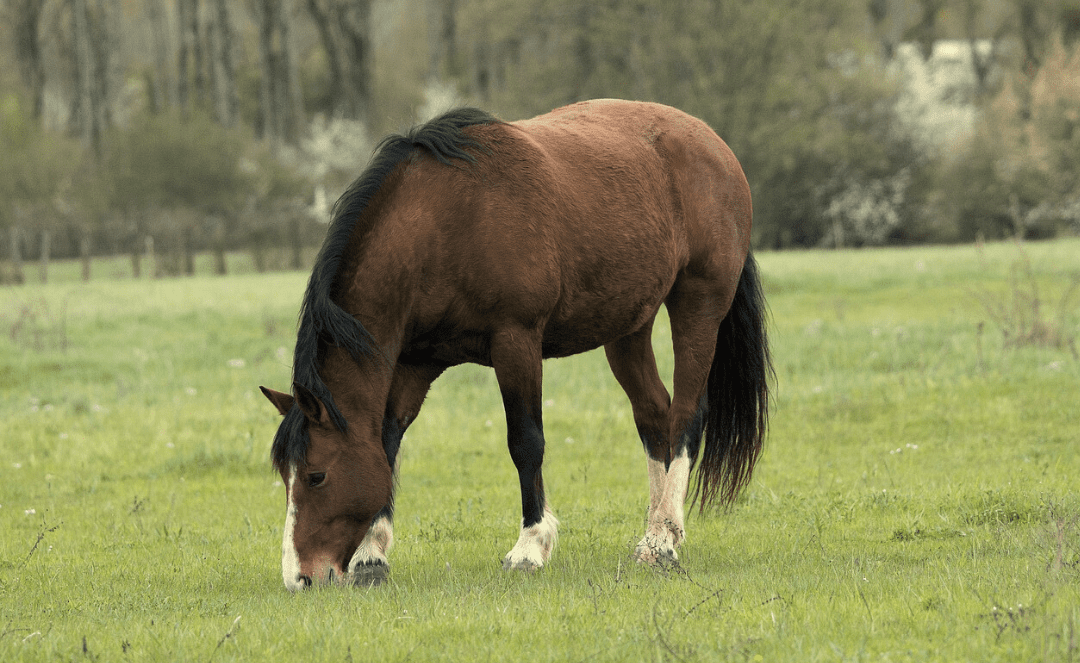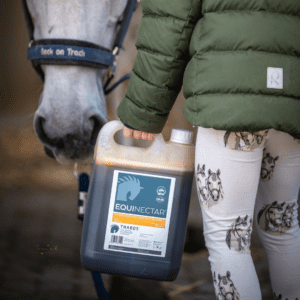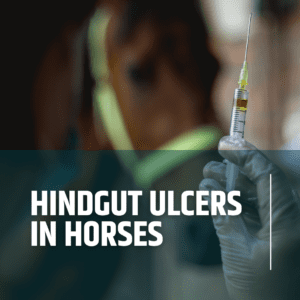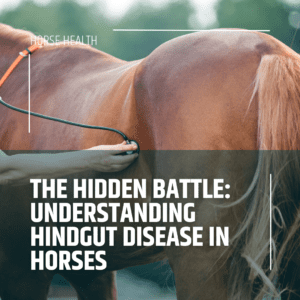Dr. Rosemary Waring is a renowned expert in equine health and a co-founder of EquiNectar, a leading company dedicated to improving horse nutrition and digestive health. With a background in veterinary science and extensive research in equine nutrition, Dr. Waring has made significant contributions to our understanding of endotoxins and their impact on horses. Her expertise and dedication to equine health have made her a respected authority in the field. Here we present answers to questions about endotoxins and hindgut disease.
Can you provide insights into endotoxins, their production in the gut, and their potential role in contributing to hindgut diseases in horses?
Endotoxins, primarily lipopolysaccharides (LPS), are components of the outer membrane of Gram-negative bacteria. They are released into the gut when these bacteria die or when they divide. In the context of equine health, understanding endotoxins is crucial, particularly regarding their role in hindgut diseases.
Production and Release of Endotoxins in the Gut
Endotoxins are a natural part of the gut ecosystem, produced as a by-product of the bacterial life cycle. In a balanced gut microbiome, the presence of these endotoxins is typically not harmful. However, certain conditions can lead to an overgrowth of Gram-negative bacteria, resulting in increased endotoxin levels.
Diet and Endotoxin Production
Diet plays a significant role in the production of endotoxins. Horses consuming high amounts of starch or fructans, which are not fully digested in the foregut due to limited enzyme activity, can experience an overgrowth of Gram-negative bacteria in the hindgut. This happens because these undigested carbohydrates reach the hindgut, where they undergo fermentation by bacteria, leading to an altered gut microbiome.
Impact on Hindgut Health
When there's an overproduction of endotoxins in the hindgut, it can lead to a condition known as endotoxemia. This occurs when endotoxins enter the bloodstream, triggering a systemic inflammatory response. In horses, this can manifest as colic, laminitis, and other serious gastrointestinal conditions.
Role of Endotoxins in Hindgut Diseases
Endotoxins contribute to hindgut diseases in horses by disrupting the delicate balance of the gut microbiome and promoting inflammation. This inflammatory response can damage the lining of the gut, impairing absorption and leading to a range of digestive issues.
Preventative Measures
Managing the diet to ensure it is appropriate for equine digestion is crucial in preventing endotoxin overproduction. Supplements like EquiNectar, which contain enzymes to improve starch and fructan digestion, can help maintain a healthy gut microbiome. A healthy microbiome reduces the risk of endotoxin-related hindgut diseases.
Can you explain how the specific enzymes in EquiNectar, work together to enhance the digestive efficiency of horses and contribute to the prevention of malfermentation issues commonly seen?
Amylase
In EquiNectar, amylase plays a pivotal role, especially considering the natural deficiency of this enzyme in horses. Amylase aids in the digestion of starch, breaking it down into simpler sugars. This is particularly beneficial for racehorses or those on high-starch diets, ensuring that less undigested starch reaches the hindgut, where it could ferment and produce harmful compounds.
Fructanase
Fructanase targets fructans, a type of carbohydrate found in grasses and grains. In horses, undigested fructans can lead to harmful fermentation in the hindgut. Fructanase breaks down these fructans into simpler sugars, thus reducing the risk of malfermentation. The importance of fructanase was highlighted by its effectiveness in horses grazing on pastures rich in fructans.
Beta Glucanase
This enzyme breaks down beta-glucans, which are complex sugars in plant cell walls. By facilitating the breakdown of beta-glucans, beta glucanase improves the digestibility of these components, reducing the risk of undigested material fermenting in the hindgut.
Phytase
Phytase targets phytate, a form of indigestible phosphorus in plants. By breaking down phytate, phytase helps in making phosphorus and other nutrients more accessible, enhancing overall nutrient absorption.
Cellulase
Cellulase is essential for breaking down cellulose, a major component of plant cell walls and a significant part of a horse's diet. Improved cellulose digestion ensures better nutrient uptake and supports gut health.
Xylanase
Xylanase works on xylans, another key constituent of plant cell walls. Similar to cellulase, xylanase enhances the breakdown of complex carbohydrates, contributing to a more efficient digestive process.
Together, these enzymes in EquiNectar work synergistically to ensure efficient breakdown of various dietary components, thereby reducing the risk of malfermentation in the hindgut and helping prevent the production of toxic compounds. This approach underscores the intricate relationship between a horse's diet, digestive physiology, and overall health.
ABOUT EQUINECTAR
Description
EquiNectar® is a natural feed supplement, that is scientifically proven to:
- Re-balance your horse’s gut bacteria
- Help your horse maximise benefits from its feed
- Improve your horse’s condition
More information
EquiNectar® is produced by Tharos Ltd in the UK. It is a natural source of digestive enzymes and contains only the following ingredients:
- Our patented enzyme rich malt extract
- Medium chain triglycerides (from coconut oil)
- Potassium sorbate
For more details of the enzymes within EquiNectar® take a look at the ingredients and enzymes page.
How to feed
Simply add EquiNectar® to your horse's daily feed, using the Feeding Rate chart to determine the correct amount.
For detailed instructions about how to introduce EquiNectar, please read the comprehensive Feeding Guide page.






